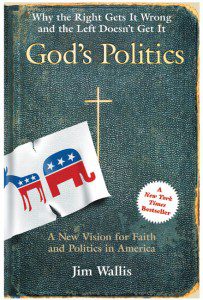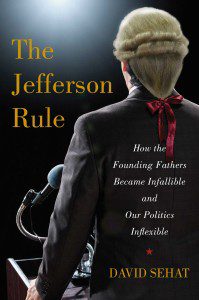 Our county’s bi-weekly newspaper published my latest Letter to the Editor this morning (Friday, March 16). Here’s a copy of what was printed:
Our county’s bi-weekly newspaper published my latest Letter to the Editor this morning (Friday, March 16). Here’s a copy of what was printed:
I am writing in response to Chester Seaborn’s letter, “Christians: Will you support Obama?” (March 7). Mr. Seaborn’s diatribe against the Democratic Party was missing an important counterbalance. He did not once mention the Republican Party. Given our two-party system I can only assume that Mr. Seaborn’s screed against Christians who vote for Democrats is meant to imply that all right-thinking Christians should vote Republican.
In contrast, a much more sensible position was outlined in Jim Wallis’ bestselling 2005 book God’s Politics: Why the Right Gets It Wrong and the Left Doesn’t Get It. Wallis reminds us that there is more to “moral values” than who marries whom. Social justice and inclusion are moral values too.
Wallis relatedly highlights that there is more to upholding the “sanctity of life” than opposing abortion; war and capital punishment concern the sanctity of life.
Wallis frequently summarizes his point by asking, “When did becoming a Christian mean being pro-rich, pro-war, and pro-Republican?” He means that Jesus, as depicted in the Gospels, seems much more pro-poor and pro-peace.
I should be clear that neither Wallis, nor myself, are saying that being a Christian should mean that you should be pro-Democrat. Wallis is criticizing some religious conservatives in this country for claiming that the only legitimate way for Christians to vote is for the Republican Party, and that anyone who votes otherwise has a bad or weak faith. Indeed, Wallis is equally critical of both the “Religious Left” and the “Religious Right”; hence, the subtitle of his book: “Why the Right Gets It Wrong and the Left Doesn’t Get It.” The way of Jesus is larger and more challenging than can be contained by the platform of any single political party in this country. Wallis made his position clear in a campaign for Sojourners, the organization that he heads, that sold bumper stickers saying, “God is Not a Republican…or a Democrat.”
I am also not saying that the way of Jesus is apolitical. Followers of Jesus have a vital prophetic critique to bring to any major political party. And Christians should be wary of allowing their prophetic critiques of politics to be co-opted into attempts to grasp the reins of political power. Whenever Christians become too entrenched in the powers that be, they usually lose their prophetic voice; they become unable to speak truth to power because they are afraid of losing their comfortable position alongside that power. They become unable to bear witness that the ways of God always challenge the unjust ways of the status quo.
If you want to know my opinion about “What Would Jesus Do?” in the upcoming election or “HWJV?” (“How Would Jesus Vote?”), I think that if Jesus had been incarnated as a U.S. citizen at the beginning of the twenty-first century, he would not be excessively concerned about elections because he would be too busy feeding the hungry, caring for the sick, and breaking bread with the “least of these” (Matthew 25). He would be too occupied loving God and neighbor to render unto Caesar at the voting booth.
Ultimately my point in inviting you to consider that Jesus may well have abstained from voting if he were alive today is that how Jesus lived his life in the first-century did not depend on who Caesar was. And how Jesus would hypothetically live today does not depend on who the President is. Again, this claim is not to say that there are no political implications of being a Christian. Instead, in the prophetic words of Micah 6:8, we are called — no matter whom is elected to public office — to “do justice, love kindness, and walk humbly with our with God.”
The Rev. Carl Gregg is the pastor of Broadview Church in Chesapeake Beach, Maryland. Follow him on Facebook (facebook.com/carlgregg) and Twitter (@carlgregg).












